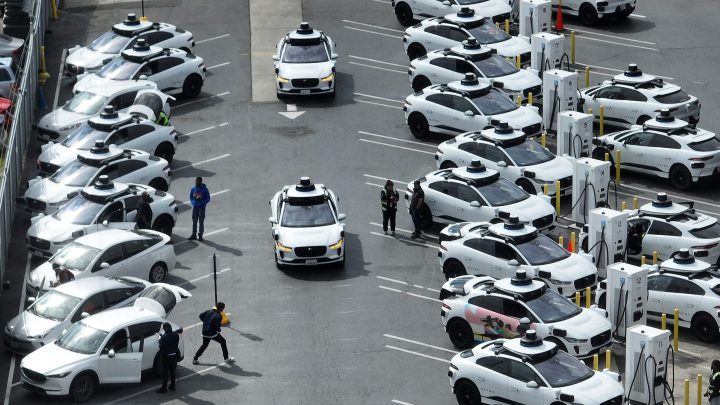
How rideshare drivers feel about robot competition

The California Public Utilities Commission will decide Thursday whether autonomous vehicle companies Cruise and Waymo can expand operations in San Francisco, one of the first big cities to pilot this tech.
So, how are the 6 million or so Uber drivers feeling about the prospect of robot competition?
Karen Reincke has been driving for Uber and Lyft in San Antonio for about seven years. Even if robot cars could deal with tourists going the wrong way down one-way streets or scooters recklessly zipping into traffic, she wonders, what are they gonna do with drunk passengers?
“They leave phones, they leave keys, they get sick in the car,” she said. “How’s a driverless car to know?”
Beyond the existential question of who will clean up the vomit, for now, human drivers are just a cheaper option than deploying a new fleet of sparkling automated vehicles.
“Uber and Lyft [are] built on a zero-asset business model,” said Sergio Avedian, a senior contributor to the website the Rideshare Guy. “They don’t own the cars, the driver does. The driver maintains the cars, buys the gas, insurance, depreciation — all these things.”
If automated vehicles do become a real threat to drivers, it might help that most aren’t completely reliant on rideshare income.
“Rideshare drivers very often are using rideshare as a secondary economic activity. They’re working in the home or they have other jobs,” noted Judy Chevalier at the Yale School of Management.
That’s true of Karen Reincke in San Antonio. She does rideshare part time now and just started full time with a translation services company.
And yes, artificial intelligence does pretty good translations now, but Reincke said she’s not worried about that either.
There’s a lot happening in the world. Through it all, Marketplace is here for you.
You rely on Marketplace to break down the world’s events and tell you how it affects you in a fact-based, approachable way. We rely on your financial support to keep making that possible.
Your donation today powers the independent journalism that you rely on. For just $5/month, you can help sustain Marketplace so we can keep reporting on the things that matter to you.

















